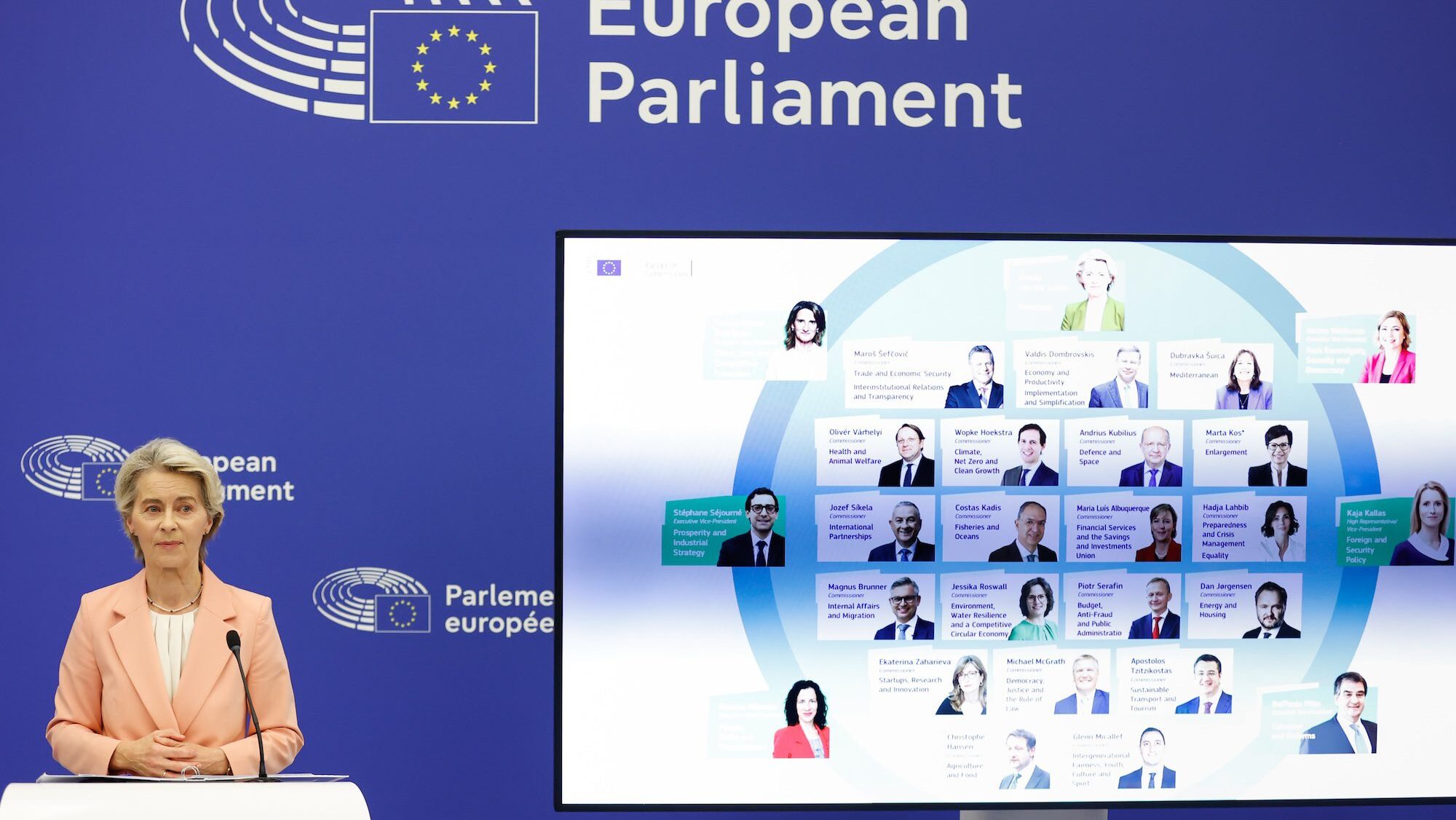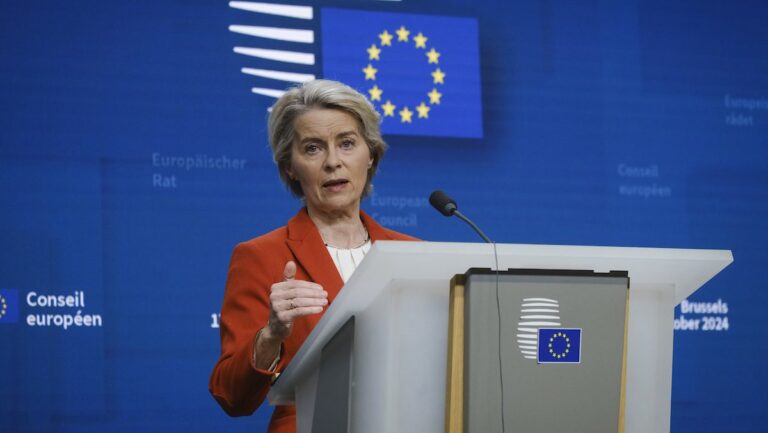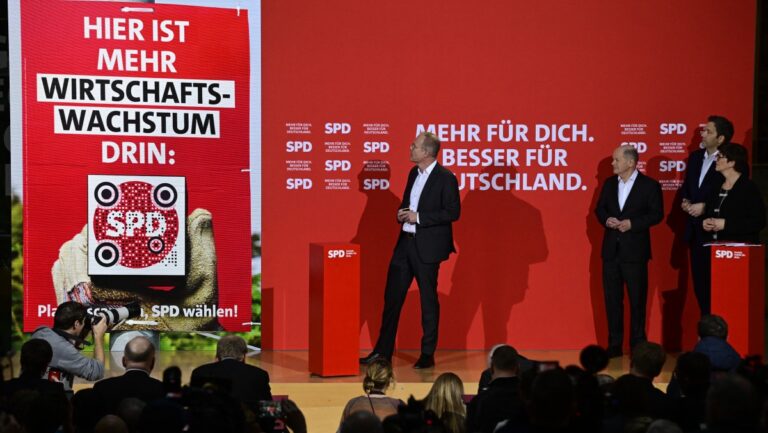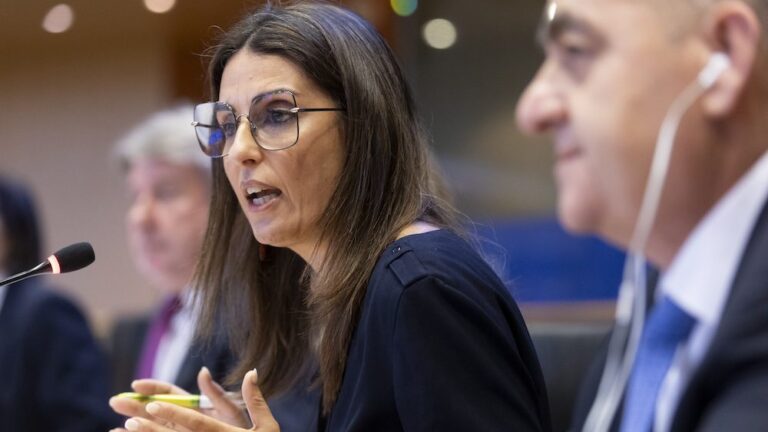The President-elect of the European Commission unveiled her initial portfolio distribution for the incoming cabinet on Tuesday, September 17th. Despite heavy opposition from the Left, Ursula von der Leyen did grant an executive vice presidency to Italy’s candidate Raffaele Fitto (Fratelli d’Italia/ECR), but she also increased the number of top seats, diluting the importance of the position. The cordon sanitaire against the Right was, no surprise, kept intact as the Commission leadership includes no representatives from the Patriots for Europe group, despite it being the third largest group in Parliament.
The last administration had three executive vice presidents, three regular vice presidents, and the High Representative for Foreign Affairs, a Commission vice president without appointment, simply by virtue of his office. The offices of the executive vice presidents were created by von der Leyen five years ago to replace the First Vice Presidency with the main objective of equally rewarding each of the three groups that made up her ‘Ursula coalition’ at the time: the centrist European People’s Party (EPP), the socialist S&D, and the liberal Renew.
We reported previously that von der Leyen this year was planning to grant a newly created executive post to Rome, in an attempt to mend her relations with Italian PM Giorgia Meloni—drawing fervent criticism from the establishment parties who couldn’t stand the idea of giving the European Conservative and Reformist (ECR) group a top seat in the Commission. Eventually, Fitto did secure the post, but it seems the Commission president was also forced to scrap regular vice presidencies completely, effectively rendering the ‘executive’ title pointless.
According to von der Leyen’s plan, the new Commission will have six executive vice presidents (including the ex officio top diplomat) and no regular vice presidents. These six are made up of two social democrats (Spain’s Teresa Ribera and Romania’s Roxana Minzatu); two liberals (France’s Stéphane Séjourné and Estonia’s Kaja Kallas as foreign affairs chief), one from EPP (Finland’s Henna Virkkunen), as well as Fitto, who will be responsible for a portfolio called “Cohesion and Reform.”
It appears von der Leyen’s strategy was to give two seats each to her liberal and socialist allies and force her own party, EPP, to settle for only one (since they have the presidency) so that the other could be given to Italy, and by proxy, the ECR. But if there are no longer regular vice presidents, the ‘executive’ distinction seems to carry no weight either.
Instead of three executive and three regular VPs, now we'll have six executives and no normal vice presidents. So what's even the point of the 'executive' label anymore? https://t.co/PR6GTiie0G
— Tamás Orbán (@TamasOrbanEC) September 17, 2024
The most important portfolio will doubtless be Ribera’s “Clean, Just, and Competitive Transformation,” which will oversee Europe’s economic revival while also maintaining a formal commitment to climate protection, as outlined in the objectives of the recently unveiled Draghi report. Ribera has been demanding a climate and energy-related portfolio for months, wanting to ‘radically’ ramp up the EU’s green transition process, which she thinks is way behind schedule.
One entirely new portfolio (given to Croatia’s Dubravka Šuica) will be dealing solely with the Mediterranean region, focusing mostly on fostering relationships with North African countries and overseeing anti-illegal migration measures—something that Italy is strongly pushing for.
On the other hand, the ridiculous and largely pointless transparency portfolio has been scrapped entirely, possibly in part due to the numerous scandals of the current holder, Věra Jourová—probably the least transparent EU official of the last administration.
Regarding the rest of the positions, one notable revelation is that Slovenia’s Marta Kos will be given the influential enlargement portfolio, just as media rumors predicted. Kos is not even an official candidate at this point due to the ongoing domestic deadlock that was provoked by von der Leyen’s undemocratic pressure on Ljubljana to swap out its initial male nominee with a female, presumably in exchange for the enlargement portfolio. The gamble seems to have paid off, but Kos still needs to clear the right-wing opposition-controlled parliamentary committee first to officially become Slovenia’s candidate.
Hungary’s Olivér Várhelyi, who has held the important enlargement portfolio for the past five years, was ‘demoted’ to handle “health and animal welfare”—no doubt for focusing on the accession of Balkan states that are closer to the Hungarian position on migration and border security
These posts are still preliminary, of course, as every candidate needs to go through parliamentary hearings in Brussels and be confirmed by the MEPs. If a candidate cannot get the approval of at least a simple majority of representatives in the respective committee in two rounds, the member state then will have to put forth another name until the entire college is approved.
With the crisis in Slovenia still ongoing, the formation of the second von der Leyen Commission could drag on until December, meaning the administration might not even commence before next year.





